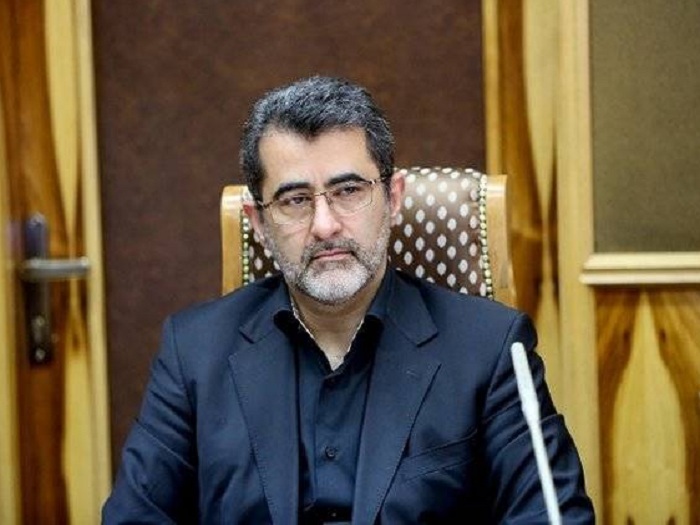The need for the government and parliament to work to eliminate redundant production laws and regulations

Deputy Head of Production Facilitation and Elimination of Barriers to Production: One of the important measures to remove obstacles in this area is to identify and eliminate annoying regulations, for which we need the cooperation of all agencies and institutions.
According to the International Iranian Stone Exhibition, "Babak Dineparast" about the actions and decisions of the Ministry of Industry and the headquarters to facilitate and remove production barriers in order to fulfill the slogan of the year, added: In the field of production, many problems such as oppressive foreign sanctions, funding, currency allocation, There are fluctuations and fluctuations in currency, supply of raw materials, problems related to money exchange and the banking system, and one of the most important of these obstacles is related to annoying and redundant laws and regulations, which must be removed by all agencies, institutions and institutions. The private sector and what the government needs.
Emphasizing the need to identify and eliminate restrictive laws and regulations in the field of production by the legislator, government and executive bodies, the Deputy Head of the Production Facilitation and Elimination of Barriers to Production pointed to the long history of implementing these annoying laws in the country and specified: Legislator and trustee of executive bodies At the time of drafting and promulgating these regulations, laws, instructions and directives, according to the conditions of that time, made and announced the best decision, but undoubtedly some of the previous laws, in the current situation can not be a suitable solution to solve the country's economic problems.
Referring to the role of the legislature, government and executive bodies in drafting these laws, the Deputy Minister of Economic Affairs and Regional Development stressed the position of these sectors and institutions in removing barriers and facilitating production and continued: Manufacturers, investors, entrepreneurs and so on. All economic activists, as Mujahideen and front-line soldiers of the economic war, have no authority to amend these disturbing rules and regulations, and the Islamic Consultative Assembly, the government, and the executive apparatus, as the custodians of laws, decrees, regulations, instructions, and directives, can enact these laws. And repeal the annoying regulations and remove them from the production route.
Criticizing the resistance of some executive bodies in charge of production to reforming and eliminating annoying laws and regulations, the theologian referred to the orders of the Supreme Leader of the Revolution regarding the impasse of some regulations and said: "We must accept the legislature and the executive as competent, competent bodies." These laws are to be amended, and of course the position of the judiciary in the facilitation debate is unique, and it is necessary to use the capacities of the judiciary and the presence of Ayatollah Ra'isi in the judiciary to support the production sector.
The Deputy Head of the Facilitation and Elimination of Barriers to Production also referred to the resolutions of the meeting of the Council of Deputies of the Ministry of Industry and added: "Based on these resolutions, it was decided to identify all laws of executive bodies that cause inconvenience to the production and employment sector." Facilitated by the headquarters.
He continued: "It was also approved that the Ministry of Industry, as the custodian of production and industry, be a pioneer in this matter, and the necessary measures were taken immediately in this regard and are still being followed up."
Deputy Minister of Economic Affairs and Regional Development, emphasizing the readiness of the Facilitation Headquarters to receive any proposals from various departments in order to disrupt and support production, considered this headquarters as the only legal and competent authority to remove barriers to production and coherence in He called for its implementation.
He went on to say that 12 of the 18 members of the Facilitation Headquarters are members of the government cabinet, and called for the compilation of laws, regulations, instructions, and disturbing and intrusive sections in the field of production by the staff members.
"One of the most important and major obstacles to production, entrepreneurship and investment in the country is the multiplicity of laws and regulations in various executive bodies, which has made the production path long and tedious for producers and entrepreneurs, so one of the important steps to boost production and Removing barriers, identifying these annoying rules.
He continued: "In the next step, we obliged the executive bodies to act within the framework of their legal powers, in order to amend and eliminate the annoying laws, and also to announce the annoying laws that are beyond their authority, in order to pursue to eliminate and correct them in a legal way." be done.
The Deputy Head of the Facilitation and Elimination of Barriers to Production also referred to the duties of the private sector to disrupt the production sector: The Facilitation Headquarters also instructed the private sector and the Chamber of Commerce to identify and introduce these annoying rules and regulations.
In the end, explaining the proposed package of the headquarters, the theologian said: "All interfering laws and regulations will be introduced in two categories of annoying laws and useful and protective laws, and in addition, the laws that need to be amended will be identified and announced by government agencies."
He said: "Also, with the cooperation of various commissions related to production in the Islamic Consultative Assembly, the Cabinet and the Council of Ministers will take action to count, review and amend the annoying laws. In addition, all agencies, ministries, institutions and government companies and The institutions of the Islamic Revolution related to production and employment are obliged to obtain the opinions of the private sector before announcing the laws and regulations in order to make the best decision in this regard.










